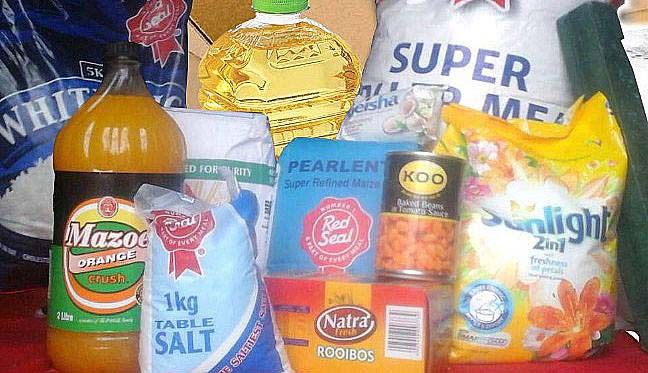Staff Reporter
Government has reassured the nation that there is no shortage of basic goods in the formal retail sector, following concerns over escalating prices in recent weeks.
Information, Publicity, and Broadcasting Services Minister Dr. Jenfan Muswere made the announcement during a post-Cabinet media briefing yesterday, addressing public fears over potential shortages of essential items such as cooking oil, mealie-meal, bread, and sugar.
Dr. Muswere stated that a survey conducted by the Ministry of Industry and Commerce between September 27 and October 4 revealed that although prices of basic goods had risen in formal retail outlets, the goods were still available.
"There are no major shortages of basic commodities in the formal sector," said Dr. Muswere.
He explained that while prices had increased due to speculative pricing linked to the fluctuation of the local currency, the availability of goods remained stable.
“The prices of commodities in US dollar terms in both formal and informal outlets have remained stable. However, the increase in prices in Zimbabwe Gold (ZiG) currency terms indicates forward or speculative pricing, with some retailers benchmarking against black market rates,” Dr. Muswere explained.
He further noted that some suppliers had reduced deliveries to formal outlets, opting instead to channel goods to informal markets where payments are predominantly made in US dollars.
"This is driven by arbitrage, as informal traders seek to take advantage of exchange rate differentials, leading to reports of hoarding in the formal sector," Dr. Muswere said.
However, the Minister stressed that Government is actively engaging stakeholders to curb speculative pricing and ensure stability in the market.
“We will continue with regular monitoring and maintaining stakeholder engagements to implement market-relevant interventions that support the formal sector and stabilize prices,” Dr. Muswere added.
Industry and Commerce Minister Mangaliso Ndlovu emphasized that the monetary interventions introduced by the Reserve Bank of Zimbabwe (RBZ) would help address the root causes of price disparities.
"The Central Bank’s interventions, including the increased supply of foreign currency to the formal manufacturing sector, are crucial for stabilizing prices and ensuring the long-term availability of goods," Minister Ndlovu said.
Commentators have urged Government to maintain close surveillance of the situation to prevent further price hikes and to safeguard consumers.
Economist Tafadzwa Chigudu emphasized the need for sustained monitoring, stating, "The government must remain vigilant and ensure that formal retailers do not engage in speculative pricing. This will go a long way in protecting consumers from unjustified price hikes."
Another economist Tatenda Mandizha also urged retailers to avoid forward pricing practices that are based on speculative currency movements.
"Retailers should refrain from forward pricing based on black market rates, as this only exacerbates inflationary pressures. Government’s measures are helping to stabilize the market, but retailers need to act responsibly," Mandizha noted.
Financial expert Victoria Ndlovu echoed the call for continued oversight, advising the government to maintain its support for the formal sector while encouraging fair pricing.
"Government’s interventions are stabilizing the supply chain, but on-going monitoring is essential to ensure that formal retailers adhere to market-based pricing. This will help build confidence in the market and ease the pressure on consumers," Ndlovu said.
Meanwhile, Government remains committed to protecting the interests of consumers and ensuring the continued availability of essential goods.
Authorities have assured the public that measures are in place to monitor market developments closely and to intervene where necessary, ensuring stability in both pricing and supply across the formal retail sector.




